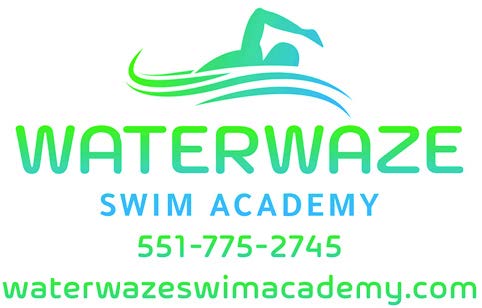
(Courtesy of Waterwaze) One of the benefits of living in Rockland County is how accessible pools are. Many of us have friends or neighbors who are willing to share. Maybe you’re not lucky enough to know the “right people,” but still get invited to pool parties or go to the bungalow colony for the weekend. Practically every camp offers swimming on a daily basis, and many have seasonal trips to waterparks. Swimming is a great activity that provides fun for the whole family. It offers numerous benefits, including sensory input, muscle tone and strengthening, and helps with focus. The problem is that drowning is the sixth leading cause of death worldwide for children aged 5-14 years. Statistically speaking, if you both own a gun and have a swimming pool in the backyard, the swimming pool is about 100 times more likely to kill a child than the gun is. Every year in the United States, there are over 4,000 fatal unintentional drownings. Having been in the industry for over 15 years, Waterwaze Swim Academy has made it our goal to train parents, therapists, and educators in what to look for when hiring a swim instructor. Over the next few weeks, this column will address the 10 most commonly asked questions about swimming lessons.
What should I do if my child refuses to go to lessons? Should I wait a year?
Yet again, we resort to the short, ambiguous answer that no one likes: it depends. In order to gain some clarity on this, you need to know your goals. It’s important to give lessons a fair chance in the beginning, especially with a child who’s nervous. There are so many variables that take time to get used to. It’s a new pool, a new instructor and a new environment without gravity. It’s a big transition! Most kids need time to adapt. The first lesson is not necessarily an indicator of what your child’s swimming journey will look like. Sometimes you have a kid who’s fearful. Maybe they just have a super-cautious personality, or perhaps they had an unpleasant experience with the water that caused them to develop a resistance to the pool. After teaching close to a thousand swimmers, we have found that fear of water doesn’t just fade away or vanish as they get older. If anything, it gets worse as they get smarter and begin to understand all the potential “risks” of learning to swim, such as getting water in their nose, choking, not being able to touch the floor and falling to the bottom of the deep end.
A few years ago, we had an extremely nervous child who came to learn how to swim. His progress was slow, and after after lessons, the mom decided to put the whole thing on hold. A week later she called to tell us that her kid had suddenly gotten comfortable after being in the pool a few more times and could she please have her slot back. Unfortunately, there were no slots left. Recently we had a mom call to sign up her 8-year-old daughter, who could barely float. The mother had thought that if she waited, she’d make some progress on her own. Fast forward a year, and the child is no further after being in the pool every day for the whole summer.
In our program, if we see that a child is nervous, we purposely take it easy for the first few lessons to give them a chance to adapt. It’s a tricky balance. On one hand, you’re spending all this money on lessons and want to see your child progress. On the other hand, we believe it’s important to develop trust between the swimmer and the instructor before moving forward. With fearful kids, this can sometimes take a while. But if you did your research into the instructor and you’ve already established that they know what they’re doing, please be patient and give them the space to do what they do best. If, between the ages of 3-5, your child is giving you a hard time and you’re not seeing progress, you might choose to take a break. (Remember, progress isn’t always obvious, and just because a kid is moving slowly doesn’t mean he’s not ready.) If they’re still anxious by the time they turn 6, we highly recommend giving them lessons even if they give you a hard time. Oftentimes, parents text me saying, “I don’t know what to do. Avi just refuses to get into his bathing suit. I think we should put lessons on hold.” My response is, “What do you do when they refuse to go to school?” Swimming is a life skill. It’s not a choice. Every child and adult needs to be safe in deep water.
Next week we’ll talk about what qualities or certifications to look for in a swim instructor.
Stay wet and stay safe!
Swimcerely yours,
Zahava
Zahava Shapiro is the owner of Waterwaze Swim Academy, which has locations in Monsey, Lakewood, and Israel. At Waterwaze, we teach swimming to all ages, from 4 months to 99 years old, using a gentle approach that prioritizes comfort over skill. Instructors are trained in Total Immersion, Infant Swim, and Swim Angelfish methods. Waterwaze swim instructors specialize in people who have been traumatized or affected by a negative experience with water. We believe every person is capable of learning how to swim. You can reach Waterwaze at 551-775-2745 or waterwazeswimacademy.com












